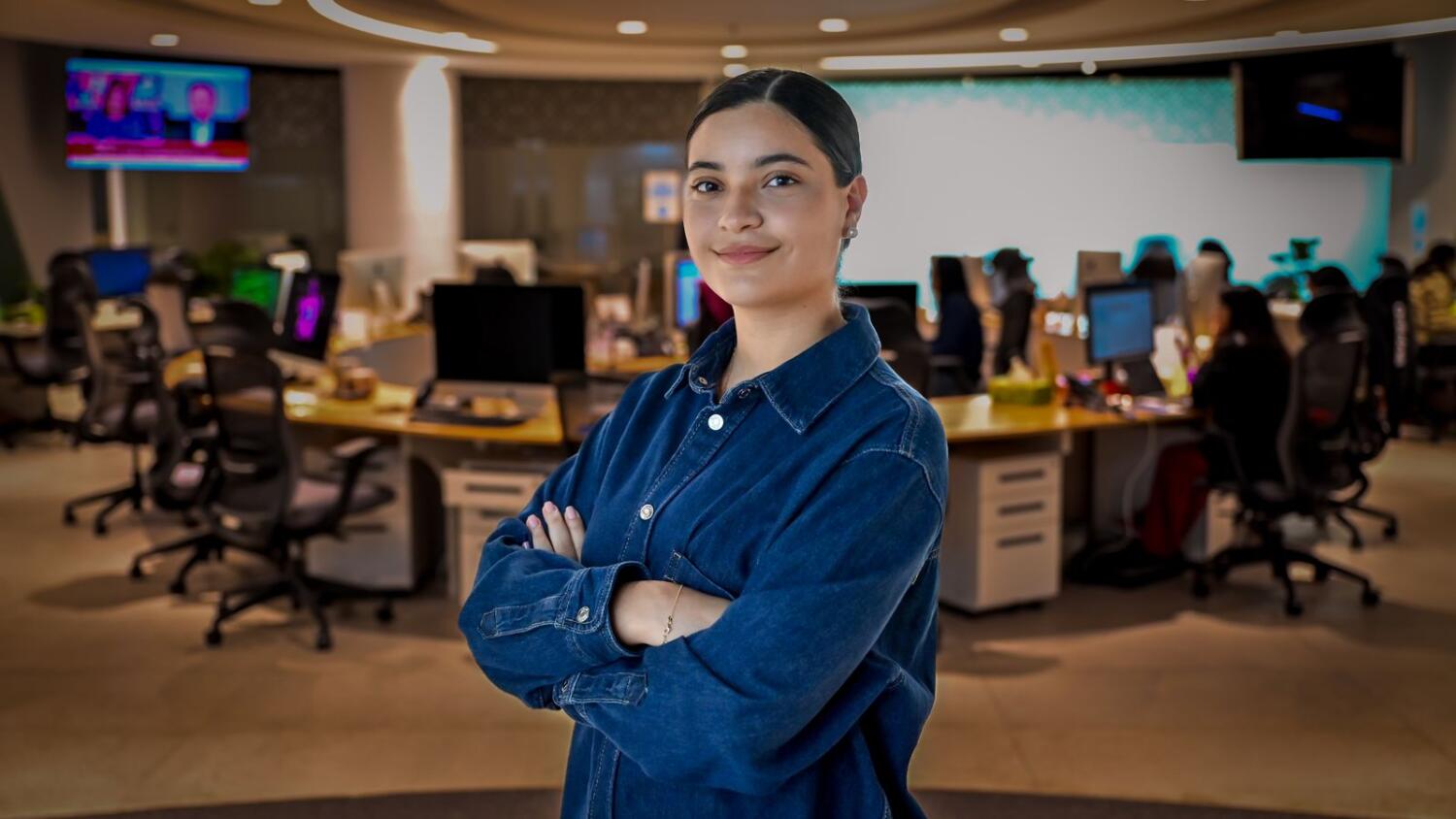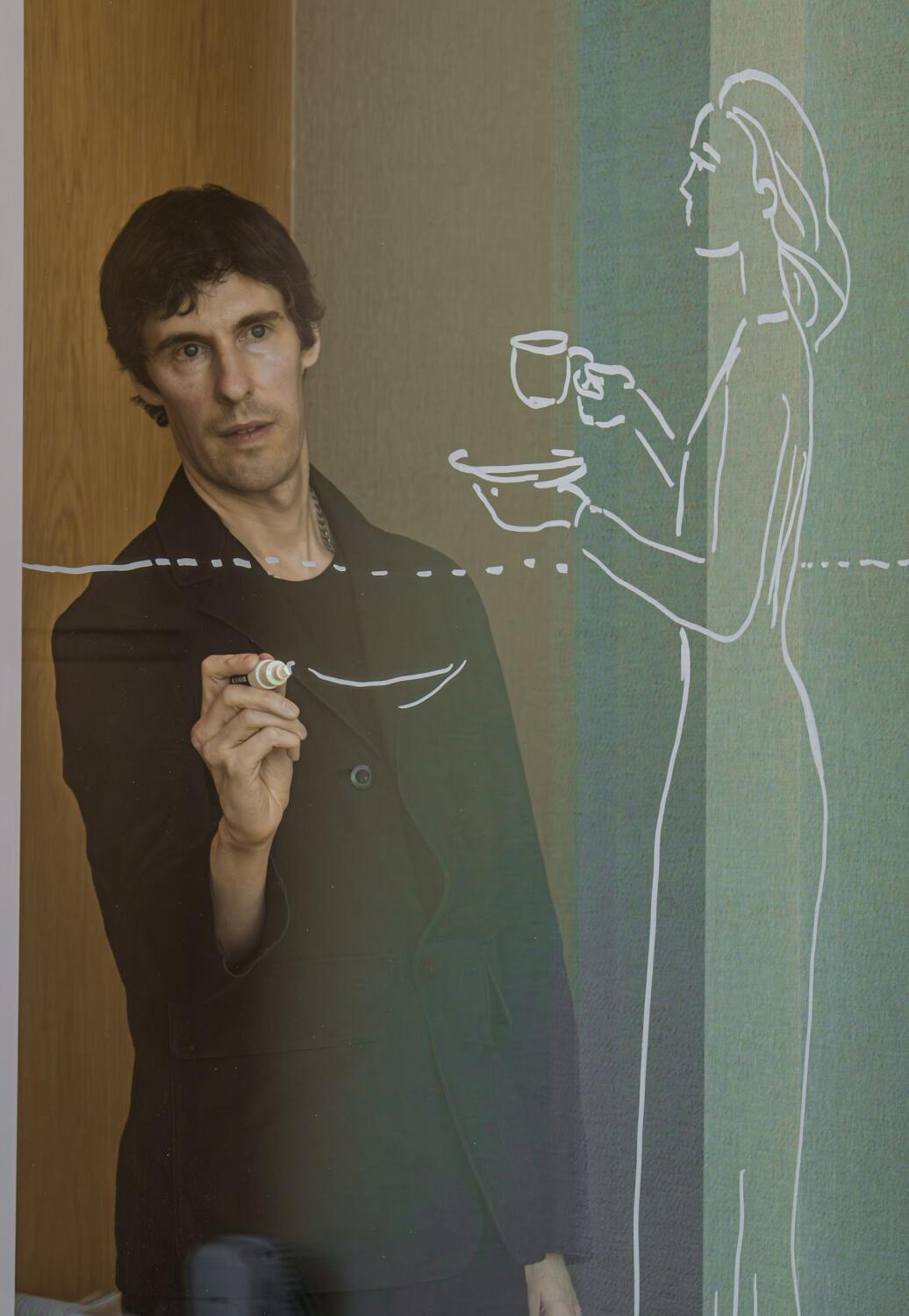Nineteen chapters in nineteen hours: This UAE citizen and ChatGPT collaborated in writing her memoir.
- byAdmin
- Jul 1, 2024
- 11 months ago

Though many individuals dream of creating their own book, very few of those fantasies ever come true. This dream came true for Yasmine Karimi, a 20-year-old French-Moroccan expat. She now boasts a memoir that reveals the complex story of her family's past in addition to detailing her own life path.
What distinguishes her attempt, nevertheless, is a special narrative turn. Rather than taking on the difficult work of creating a novel by herself, 19-year-old Karimi enlisted the unusual help of ChatGPT to write her memoirs.
Since my early teens, artificial intelligence (AI) has piqued my curiosity constantly, especially with the debut of ChatGPT in November 2022. At that point, I started looking more closely at the possible uses for this technology, particularly with regard to large language models' (LLMs') capabilities," adds Karimi, who is presently enrolled in Sciences Po Paris, The Paris Institute of Political Studies, in France to get a master's degree in finance.
Co-authored by ChatGPT
AI's easy transition into our daily life begs interesting issues about how it fits into our narrative. To what extent can AI portray human experiences in a realistic manner? A query that piqued Karimi's interest and made her explore the limits of what ChatGPT might do in co-writing a story as intricate and intimate as her own life story.
"Although I saw that other people were using the technology to create fiction for profit, my goal was distinct. As of yet, no one has dared to create an autobiographical story using AI. This gave me a great chance to try new things and inspired me to write the memoir," adds Karimi.
The memoir, titled 19, is the first of its type and includes personal tales from three generations of the family. The memoir presents Karimi's singular life narrative, starting with her parents, who relocated to Dubai when she was four years old, and ending with her grandparents, who struggled through severe poverty in Morocco throughout the 1960s and 1970s. Growing up in the United Arab Emirates and being exposed to many cultures is also a crucial aspect of this story.
Here, there's no such thing as a stranger since everyone is a native, with their own history, culture, and tale to share. I have a strong feeling of purpose and unity in spite of this tremendous diversity. She continues, "It seems like we're all heading in the same direction and cooperating to improve our lot in life.
"More like a partner than a tool"
The power of AI is in giving voice to tales that may go unreported otherwise. Karimi states, "It's more of a collaborator than just a tool." A tool is usually something that does one thing, however ChatGPT is much more than that. It almost seems like you're having a back-and-forth dialogue with it.
The youthful author claims that rather than undermining or impeding human intelligence or creativity, generative AI has the potential to greatly increase human potential. In fact, because generative AI operates as an equaliser, I believe it to be far more potent. People who might not have had access to traditional publishing resources or excellent writing abilities are now able to create a book independently for the first time, according to Karimi.
Nineteen hours, nineteen chapters
It's incredible that Karimi wrote the intricate memoir in just 19 hours, with 19 chapters total—one for each year of her life. "The process was really simple to follow. Like all ChatGPT chat, it started with a prompt. I answered the prompt with personal information.
Karimi started her writing career by providing ChatGPT with personal information about herself as well as details about her parents' and grandparents' lives. "I sent in emails, tweets, and cover letters that I had written to demonstrate my own writing style. I could give the story more substance by including pictures of myself and the locations I had lived in Dubai and Abu Dhabi.
She then gave ChatGPT instructions to find the 19 pivotal events that will make up the 19 chapters using certain questions. Karimi, who used GPT4 to write the book, says, "I instructed it to capture my writing style and replicate it throughout the 19 chapters, through adopting an iterative approach based on feedback loops."
GPT4
GPT4, the most recent iteration of the Generative Pre-trained Transformers class of deep learning models with a focus on text creation and natural language processing, is a significant breakthrough in the field of artificial intelligence. "Both generating and submitting photographs are possible with GPT4. GPT4 even created my book's cover in its entirety. Although it costs $20 a month, Karimi feels it's well worth it.
"GPT4 seems more human than ever before," she says, highlighting the main change she saw between the most recent edition and the previous one. It can express emotions with far greater depth and effectiveness.
There's a specific section that talks about my early years, when I was raised in Abu Dhabi next to a corniche. Every time I read it, it brings tears to my eyes since it so beautifully captures the entire experience. Karimi remarks, "It's so accurate," and expresses her amazement at ChatGPT's ability to portray the situation even more accurately than she could.
"When I looked out the window as a child, I was always in awe of the view, and the description perfectly captured that feeling."
Is AI able to support creativity?
Beyond the simple advantages of time optimisation and efficiency, generative AI's impact on narrative challenges and broadens our conventional conception of creativity—once thought to be exclusively human domain.
People had the impression that artificial intelligence (AI) would first appear as robotics with arms and legs, mostly utilised in factories, manufacturing, and other comparable environments. We now understand that the first area to be impacted by AI is creativity," adds Karimi. "Content, photos, music, and other creations that were previously inconceivable can now be produced by AI." Already, it's interfering with narrative and creativity.
Karimi contends that the fact that ChatGPT was used to assist her in writing her book does not diminish its worth. "Books can be written by AI, by humans, or by both AI and humans." In the same way that AI and humans may both produce art, such as paintings or digital art. According to Karimi, one does not preclude the other.
Value is ultimately determined by the market, whether it be the book or art market. What is valuable and what isn't will inevitably be determined by the laws of supply and demand.
"Using ChatGPT is not shameful."
According to Karimi, while thinking about how AI will affect the workforce, one should be cautiously optimistic. She continues, "We won't find ourselves jobless." "However, AI has the potential to replace some jobs, particularly repetitive ones."
According to Karimi, this tendency has the potential to be a "liberating force" and be highly advantageous. "Instead than focusing on highly mechanised and monotonous work, people may choose to pursue more creative endeavours. We humans are really good at finding new jobs, so I think we'll be able to adjust. But it's best to proceed cautiously during this transitional phase as there may be some difficulties, advises Karimi.
Karimi contends that it is crucial to set up a framework, either organizationally or at the regulatory level, to assist in anticipating and addressing such issues before they develop.
Since the advancement of technology is unavoidable, it is imperative that people are informed about this change. It is important to provide education on the proper use of these technologies, including how to provide more effective prompts and maximise production. It is not improper to use ChatGPT and similar programmes. She ends, saying, "You simply have to embrace the wave; you can't resist it.
Post a comment
Hot Categories
Recent News
Sunny Deol, Ameesha Patel visit Attari–Wagah border ahead of Gadar 2 release
- May 1, 2024
- 1 year ago
Which skin type are you? This is a guide on skincare for various skin types.
- Jun 28, 2024
- 11 months ago
“Heat waves been fakin' me out”, Planet has Upgraded from Global Warming to Global Boiling
- Jun 25, 2024
- 11 months ago
Global Oil Markets and the Iran-Israel Conflict: Is a Price Shock Coming?
- Jun 20, 2025
- 2 days ago
Daily Newsletter
Get all the top stories from Blogs to keep track.







0 comments